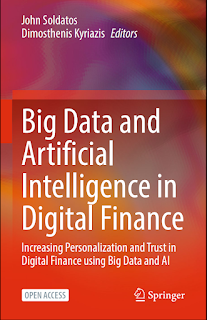In
digitalization era, banks and financial organizations are rushing their digital
transformation. As part of this revolution, financial organizations produce extraordinary
quantities of data about their financial and insurance procedures while using unconventional
digital technologies (e.g., big data, AI, Internet of Things (IoT)) to gather, study,
and fully leverage the generated data assets [1]. Furthermore, recent
regulatory developments (e.g., the 2nd Payment Services Directive (PSD2) in
Europe) [2] facilitate the sharing of data across financial organizations to
enable the development of innovative digital finance services based on novel
business models. The latter aim at lowering the barriers for new market players
(e.g., payment service providers (PSPs) in the PSD2 context) to develop and
roll out new services in ways that increase clients’ fulfilment and generate
new income streams.
Overall,
financial and insurance groups take benefit of big data and IoT technologies with
the aim of improving the accuracy and cost-effectiveness of their services, along
with the general value that they provide to their customers. Nevertheless,
despite early placement instances, there are still many tasks that must be
overcome prior to leveraging the full potential of big data and AI in the
finance and insurance sectors.
Download Big Data and Artificial Intelligence in Digital Finance Here

Comments
Post a Comment